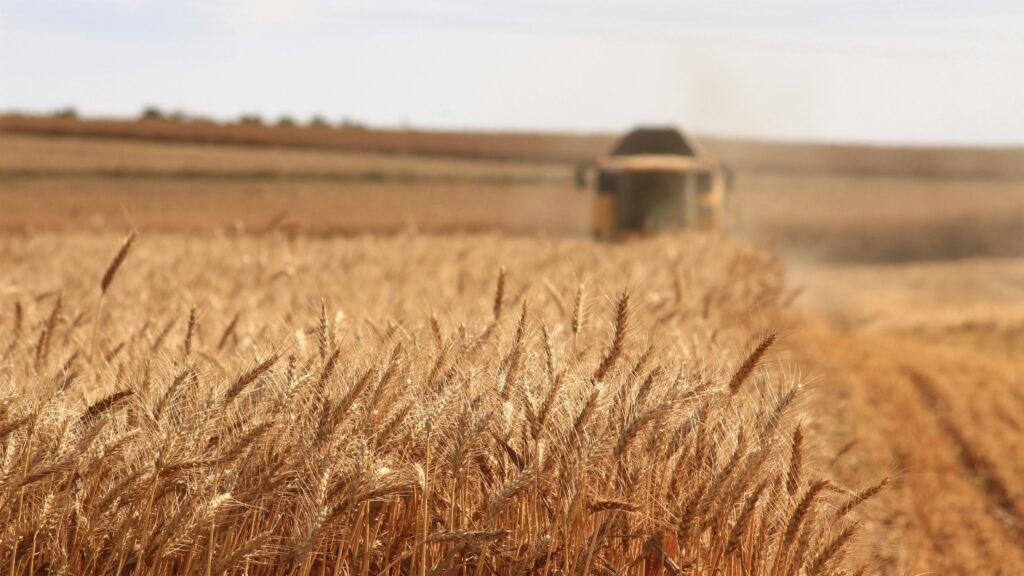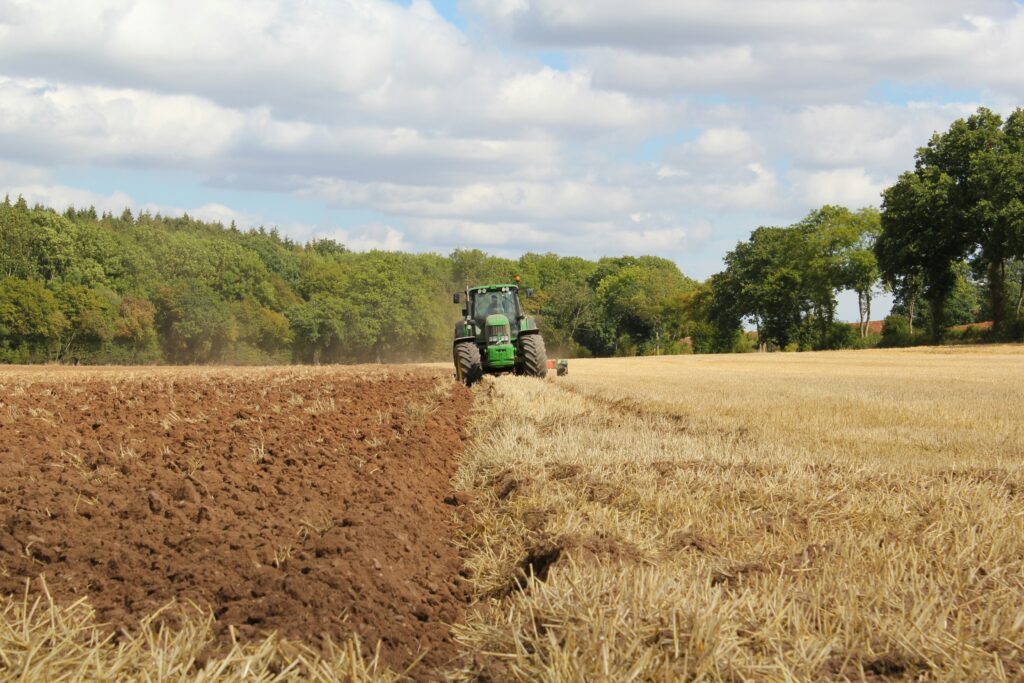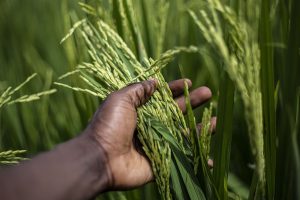Organic farming practices have gained significant attention in recent years due to their numerous environmental benefits. By eliminating the use of synthetic pesticides and fertilizers, organic farming promotes healthier soil and water quality, reducing the risk of contamination and preserving delicate ecosystems. Additionally, organic farming methods focus on enhancing biodiversity, which helps to combat climate change and protect endangered species. With its emphasis on sustainable practices and reduced carbon footprint, organic farming demonstrates a promising commitment to preserving our planet for future generations.

Reduced Chemical Use
Organic farming practices prioritize reducing chemical use, which has numerous positive impacts on the environment. By decreasing pesticide use, organic farmers minimize the risks of harming beneficial insects, wildlife, and habitats. This approach also helps to protect pollinators such as bees and butterflies, which are essential for maintaining biodiversity and enabling crop production. Additionally, reduced pesticide use minimizes the potential for pesticide residues in the soil, water, and food, promoting overall environmental health.
Another key aspect of organic farming is the reduced utilization of synthetic fertilizers. Instead, organic farmers rely on natural practices such as crop rotation, composting, and manure application to enhance soil fertility. This not only reduces the reliance on non-renewable resources but also prevents the contamination of water bodies through runoff of nitrogen and phosphorus from synthetic fertilizers. By adopting organic practices, farmers contribute to maintaining water quality and supporting aquatic ecosystems.
Moreover, organic farming limits the use of antibiotics in animal husbandry, which helps to combat antibiotic resistance. Overuse of antibiotics in conventional farming can lead to the development of antibiotic-resistant bacteria that pose a threat to both animal and human health. By minimizing antibiotic use, organic farming contributes to preserving the effectiveness of antibiotics, ensuring their availability for treating bacterial infections when necessary.
Soil Health
Organic farming practices prioritize the improvement of soil health, which is essential for sustainable agriculture. One way organic farming achieves this is through the development of improved soil structure. By avoiding the compaction caused by heavy machinery and tilling, organic farmers create a more porous soil that allows for better water infiltration and root penetration. This increased soil structure enhances overall soil health, leading to improved plant growth and productivity.
Organic farming also focuses on increasing organic matter in the soil. Through practices such as cover cropping, green manure application, and composting, organic farmers enrich the soil with organic materials. This not only enhances nutrient availability for plants but also improves soil fertility and water-holding capacity. As a result, organic farming contributes to the preservation and restoration of soil health, preventing erosion and supporting sustainable agricultural practices.
Furthermore, organic farming emphasizes the enhancement of nutrient cycling in the soil. By promoting the use of organic fertilizers and reducing the reliance on chemical inputs, organic farmers create a balanced and self-sustaining nutrient cycle. This approach reduces nutrient losses and nutrient runoff, minimizing water pollution and preserving the quality of ecosystems. Through the practice of organic farming, farmers can ensure long-term soil health and fertility, contributing to sustainable agriculture.

Water Conservation
Water conservation is a crucial aspect of organic farming. By reducing water pollution, organic farming practices support the preservation of water resources and promote sustainable water management. One of the ways organic farming achieves this is by minimizing the leaching of pesticides and synthetic fertilizers into water bodies. With the limited use of these chemicals, organic farmers reduce the likelihood of contamination of groundwater and surface water, thus safeguarding water quality.
Furthermore, organic farming practices contribute to the decreased soil erosion, another important factor in water conservation. By maintaining soil structure and utilizing erosion control techniques such as contour plowing and cover cropping, organic farmers prevent the runoff of soil particles and sediments into water bodies. This not only protects aquatic ecosystems but also helps to retain the soil’s water-holding capacity, thereby conserving water resources.
In addition to preventing water pollution and soil erosion, organic farming supports the preservation of water resources through the promotion of water-efficient irrigation methods. Techniques such as drip irrigation and precision watering minimize water wastage, ensuring optimal water distribution while reducing the need for excessive irrigation. By adopting these practices, organic farmers contribute to sustainable water management and conservation efforts.
Biodiversity Preservation
Preserving biodiversity is a key objective of organic farming. Organic farmers prioritize the protection of wildlife and habitats, recognizing the importance of a diverse ecosystem for the sustainability of agricultural systems. By avoiding the use of synthetic pesticides and fostering natural pest control methods, organic farming creates a safer environment for beneficial insects such as ladybugs, lacewings, and predatory wasps. These insects play a crucial role in combating pests, reducing the need for chemical interventions.
Furthermore, organic farming practices support the preservation of genetic diversity in crops and livestock. Through techniques such as seed-saving and the use of heritage varieties, organic farmers contribute to maintaining a wide range of plant and animal species. This genetic diversity is essential for the resilience of agricultural systems, enabling crops and livestock to adapt to changing environmental conditions and resist diseases. By promoting genetic diversity, organic farming helps to safeguard the future of agriculture and protect the long-term sustainability of food production.

Climate Change Mitigation
Organic farming plays a significant role in mitigating climate change by reducing greenhouse gas emissions and promoting carbon sequestration in the soil. One of the main contributors to greenhouse gas emissions in agriculture is the use of synthetic fertilizers, which release nitrous oxide, a potent greenhouse gas. By minimizing the use of these fertilizers and relying on organic sources of nutrients, organic farmers reduce the overall emissions associated with agriculture.
Additionally, organic farming practices promote carbon sequestration in the soil, which helps to mitigate climate change. By maintaining high levels of organic matter in the soil through techniques like cover cropping, composting, and crop rotation, organic farmers enhance the soil’s ability to store carbon. This sequestration of carbon dioxide from the atmosphere reduces its concentration, mitigating the greenhouse effect and contributing to climate stabilization.
Moreover, organic farming generally entails lower energy consumption compared to conventional farming. This is due to the reduced reliance on synthetic fertilizers, pesticides, and machinery. By minimizing energy inputs, organic farming reduces dependence on fossil fuels and mitigates greenhouse gas emissions associated with energy production. This sustainable approach to energy use helps to combat climate change and create a more environmentally friendly farming system.
Improved Air Quality
Organic farming practices have numerous benefits in terms of air quality improvement. Firstly, the decreased use of synthetic pesticides results in less air pollution. Pesticides are often sprayed onto crops, and their volatile components can evaporate into the air, contributing to air pollution. By prioritizing natural pest control methods and minimizing chemical use, organic farmers reduce the release of these volatile compounds into the atmosphere, resulting in cleaner air.
Furthermore, organic farming practices aim to reduce the release of toxic gases into the environment. Conventional farming often involves the use of chemical fertilizers, which can emit gases like ammonia and nitrogen oxides. These gases contribute to air pollution and can harm human health. By minimizing the use of synthetic fertilizers and opting for organic alternatives, organic farming helps to mitigate air pollution and create a healthier living environment.
Another important aspect of improved air quality in organic farming is the reduction in chemical drift. Chemical drift occurs when pesticides are sprayed and carried by wind currents beyond the intended target area. This can result in the contamination of nearby ecosystems, including water bodies and habitats. Organic farming practices, which typically prioritize localized and targeted pest control methods, minimize the risk of chemical drift, contributing to cleaner air and a safer environment for both humans and wildlife.
Resistance to Resistance
One of the major advantages of organic farming is the reduced development of pesticide-resistant pests. Conventional farming often relies heavily on pesticides, leading to the development of resistance in many pest species. However, by utilizing natural pest control methods, crop rotation, and habitat diversity, organic farmers can effectively manage pests without the excessive use of chemicals. This decreases the likelihood of pests developing resistance, ensuring the long-term effectiveness of pest management strategies.
Similarly, organic farming practices contribute to the reduction in antibiotic-resistant bacteria. In conventional animal husbandry, antibiotics are frequently used as growth promoters and preventive measures against disease outbreaks. However, this overuse of antibiotics can lead to the development of antibiotic-resistant bacteria that pose a threat to both animal and human health. By minimizing antibiotic use and focusing on preventive measures such as hygiene and proper animal nutrition, organic farming helps to combat the development and spread of antibiotic resistance.
Furthermore, organic farming promotes enhanced resistance in plants and animals through natural farming practices. By prioritizing genetic diversity, habitat preservation, and sustainable nutrition, organic farmers create a resilient ecosystem that supports the development of strong and healthy organisms. This enhanced resistance contributes to the overall sustainability of agricultural systems, ensuring the long-term productivity and stability of organic farms.
Healthy Food
One of the main benefits of organic farming is the production of healthy food that is free from harmful chemicals. By minimizing the use of synthetic pesticides and artificial fertilizers, organic farmers reduce the potential exposure of consumers to these substances. This is particularly important for vulnerable populations such as children, pregnant women, and those with compromised immune systems. By choosing organic food, consumers can reduce their intake of potentially harmful chemicals and make healthier choices for themselves and their families.
Moreover, organic produce often contains higher nutrient content compared to conventionally grown counterparts. Organic farming practices focus on enriching the soil with organic matter, which enhances the availability of essential nutrients for crops. This results in organic fruits, vegetables, and grains that are more nutrient-dense, providing consumers with increased nutritional value. By opting for organic food, individuals can ensure they are obtaining the maximum nutritional benefits from their diet.
Additionally, organic farming minimizes the risk of food contamination. Conventional farming practices that involve the use of synthetic pesticides and fertilizers can increase the likelihood of foodborne illnesses. By adhering to organic standards and prioritizing natural pest control methods, organic farmers reduce the risk of contamination by pathogens such as Salmonella and E. coli. This ensures that organic food is safer and less likely to cause foodborne illnesses.
Sustainable Farming Practices
Organic farming is based on sustainable practices that prioritize the efficient utilization of resources. By reducing reliance on synthetic inputs, organic farmers minimize the dependence on non-renewable resources such as fossil fuels. This not only reduces greenhouse gas emissions but also contributes to the conservation of finite resources.
Additionally, organic farming practices, such as cover cropping, composting, and crop rotation, enhance long-term soil fertility. These methods replenish the soil with organic matter, nutrients, and beneficial microorganisms, ensuring the soil’s ability to support plant growth and productivity for future generations. With sustainable soil management practices, organic farmers promote regenerative agriculture, which restores and rejuvenates the soil for long-term sustainability.
Furthermore, organic farming supports the principles of biodiversity conservation and ecological balance. By creating diverse habitats, maintaining high levels of genetic diversity, and fostering natural pest control methods, organic farmers promote the health and resilience of ecosystems. This approach supports the interconnectedness of organisms and enables the provision of ecosystem services such as pollination, nutrient cycling, and soil erosion control. Through sustainable farming practices, organic farmers contribute to the broader goal of maintaining the balance and health of ecosystems.
Support for Ecosystem Services
Organic farming practices have a positive impact on ecosystem services, which are the benefits that humans obtain from natural ecosystems. One of these services is the protection of pollinators. By avoiding the use of synthetic pesticides that can harm bees, butterflies, and other pollinators, organic farming creates a safe and supportive environment for these crucial species. This contributes to the pollination of crops, wildflowers, and other plants, ensuring their reproduction and biodiversity preservation.
Furthermore, organic farming plays a significant role in water filtration and purification. The use of natural and organic fertilizers, as well as the promotion of soil health, reduces nutrient runoff and contamination of water bodies. This helps to maintain the quality of water resources and supports the healthy functioning of aquatic ecosystems. Organic farming practices such as riparian buffers and wetland conservation also contribute to the purification of water, enhancing the provision of clean water for both humans and wildlife.
Additionally, organic farming practices contribute to improved soil erosion control. By maintaining soil structure, enhancing organic matter content, and utilizing erosion control techniques, organic farmers prevent the loss of soil through erosion. This is vital for protecting arable land, maintaining the productivity of agricultural areas, and preserving the biodiversity and ecological balance of ecosystems.
In conclusion, organic farming offers numerous environmental benefits that contribute to the overall sustainability of agricultural systems. By reducing chemical use, prioritizing soil health, conserving water resources, preserving biodiversity, mitigating climate change, improving air quality, combating resistance, producing healthy food, adopting sustainable practices, and supporting ecosystem services, organic farming promotes a holistic and environmentally friendly approach to food production. By supporting organic farming practices, individuals and communities can make a positive impact on the environment and contribute to the creation of a healthier and more sustainable future.




